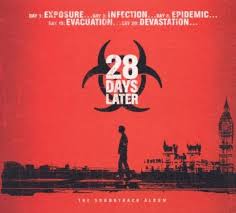The Legacy of 28 Days Later in Horror Cinema

The Importance of 28 Days Later
Released in 2002, “28 Days Later” revolutionised the horror genre, combining elements of the post-apocalyptic and viral outbreak themes. Directed by Danny Boyle and written by Alex Garland, the film not only received critical acclaim but also reshaped how audiences perceive zombie films. Its influence can still be seen in contemporary horror cinema and beyond.
Main Body
The film is set in a dystopian England, following the story of Jim, portrayed by Cillian Murphy, who awakens from a coma to find the world overrun by a rage-inducing virus. This chilling premise is grounded in scientific plausibility, revolving around the rapid spread of infection and societal breakdown. The film’s raw imagery and intense atmosphere highlighted a sense of dread, leading to a re-evaluation of the horror genre.
“28 Days Later” is often credited with reviving interest in zombie films, a sub-genre that had waned in popularity. The film’s fast-moving infected, in stark contrast to the shambling zombies of previous eras, introduced a new level of terror that captivated audiences. Moreover, its innovative use of digital video technology helped create a gritty aesthetic that made the film feel more urgent and visceral.
Academics and critics alike have examined the film’s themes, which resonate with real-world issues such as pandemics and societal collapse. As we face ongoing global health crises, the film’s portrayal of societal breakdown and human resilience has only grown more relevant. Its influence extends beyond the screen; numerous filmmakers have cited it as a major inspiration, leading to an influx of similar films like “The Walking Dead” and “World War Z.”
Conclusion
“28 Days Later” remains a significant piece of cinematic history, not merely for its thrilling narrative but for its broader cultural implications. As audiences grapple with contemporary events that echo the film’s themes, it serves as a reminder of the power of horror to respond to societal anxieties. Looking ahead, the continuing interest in the film suggests that its legacy will endure, inspiring new voices in the horror genre for years to come. The impact of “28 Days Later” exemplifies how a film can transcend its genre and contribute to important societal conversations.








